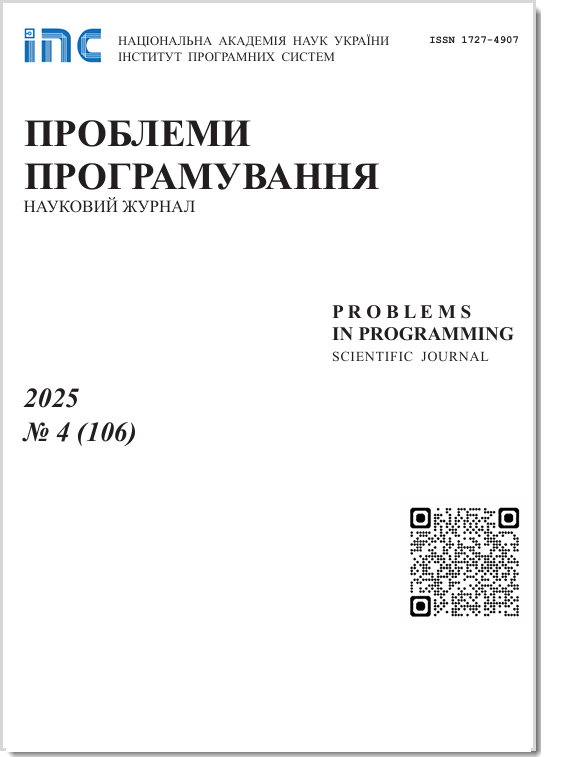Computer model of organization transformation
Abstract
The article is devoted to the topical issue of creating a computer system to support management decisions regarding the optimization of the transformation processes of organizations when adapting to the conditions of the implementation of new projects. The purpose of the article is to increase the efficiency of large organizational structures by creating computer models that, on the one hand, have a sufficient level of adequacy, and on the other hand, have a visual interpretation of the main input parameters, which allows them to be easily determined on the basis of empirical data. A computer model in the form of a simulation model is considered as the basis of the management decision support system. In the work, the analysis of existing studies is performed, the relevance of the problem is substantiated. The analysis of existing exponential and linear models was performed. Reasoned adequacy of logistic models. The differential form of logistic models is considered. The ordinary differential equation of the logistic model is solved in order to obtain the integral form of the logistic equation. The parameters of the computer model are introduced, which are easy to determine numerically on the basis of empirical data. A mathematical model of the beneficial effect of the organization in the conditions of transformation was created, which establishes the dependence of the beneficial effect on the input resource (time). The model is created as a combination of several logistic dependencies, each of which is responsible for increasing or decreasing the beneficial effect. The model takes into account the dependences of the growth of the useful effect for the main and new technologies, the decrease of the useful effect as a result of the moral obsolescence of the technology, and the gradual decrease of the useful effect due to the directive shutdown of the old technology. The structure of the model allows its scaling to more complex development scenarios. The concept of the degree of insensitivity of the useful effect to small amounts of input resources at the initial stages of the organization's development is introduced. The dependence of the initial result on the degree of insensitivity was studied. The model was implemented using the MatLab algorithmic language.
Prombles in programming 2024; 2-3: 84-91
Keywords
Full Text:
PDF (Українська)References
Shevchenko V.L. Optimization modeling in strategic planning.– K.: TsVSD NUOU, 2011. -283p.
A Guide to the Project Management Body of Knowledge PMBOK, 6-th edition, Project Management Institute, Inc., 2017.
A Guide to the Project Management Body of Knowledge PMBOK, 7-th edition, Project Management Institute, Inc., 2021.
Nozdrina L.V. Project management: a textbook [for students of higher educational institutions] / L.V. Nozdrina, V.I. Yashchuk, O.I. Patch it up; Ministry of Education and Science of Ukraine, Ukoopspilka; Lviv. commerce Acad. - Kyiv: Center for Education. l-ry, 2010. – 430 p.
Mykytyuk P.P. Project management. Training manual [for higher education closed.] / P.P. Mykytyuk – Ternopil, 2014. – 270 p.
Shevchenko V.L. Imitation modeling. Mathematical modeling of processes: Study guide. / [V.I. Mirnenko, V.L. Shevchenko, D.S. Berestov, R.M. Fedorenko, A.V. Shevchenko]; under the editorship V.L. Shevchenko. – K.: KNU named after T. Shevchenko, 2020. – 164 p.
Numerical methods. Study material. Core Course. B Sc Mathematics. VI Semester. University of calicut. School of distance education. Sri.Nandakumar. 2011. – 223p.
Shevchenko V.L. Computing methods: Study guide. / [V.L. Shevchenko, D.S. Berestov, M.V. Tkachenko, R.M. Fedorenko] ; under the editorship V.L. Shevchenko. - K.: KNU named after T. Shevchenko, 2019. - 132 p.
Introduction to Numerical Methods and MatLab Programing for Engineers. Todd Young and Martin J. Mohlenkamp. Ohio University. 2015.
Theory of optimal branched trajectories / O.I. Lysenko, O.M. Tachinina, S.O. Ponomarenko, O.H. Guida - K.: KPI named after Igor Sikorsky, 7 BC, 2023. - 260 p.
DOI: https://doi.org/10.15407/pp2024.02-03.084
Refbacks
- There are currently no refbacks.









